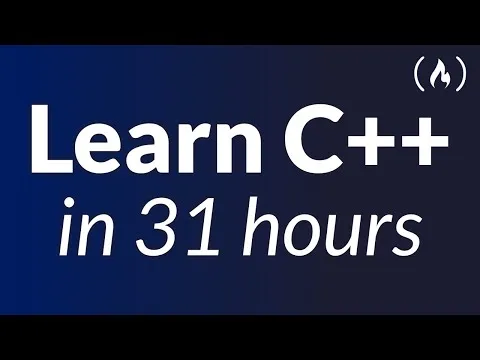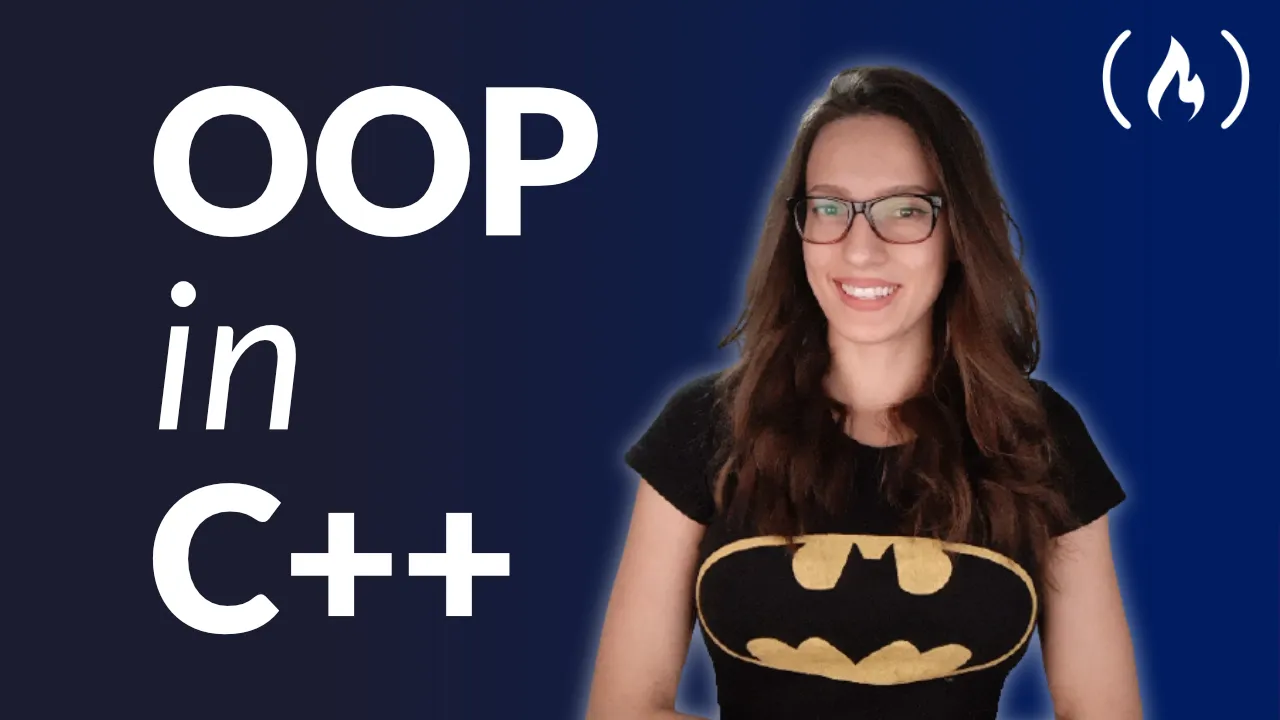
C++ Programming: Intermediate Concepts 
This course provides an introduction to C++ programming and core Computer Science topics. It is designed for learners with limited coding experience, allowing them to write and run their first C++ program in minutes without any installation. It provides a solid foundation for further learning. ▼
ADVERTISEMENT
Course Feature
![]() Cost:
Cost:
Free
![]() Provider:
Provider:
Edx
![]() Certificate:
Certificate:
Paid Certification
![]() Language:
Language:
English
![]() Start Date:
Start Date:
Self paced
Course Overview
❗The content presented here is sourced directly from Edx platform. For comprehensive course details, including enrollment information, simply click on the 'Go to class' link on our website.
Updated in [March 06th, 2023]
This course, C++ Programming: Intermediate Concepts, is designed for learners with limited coding experience. It provides a solid foundation of not just C++, but core Computer Science topics that can be transferred to other languages. Learners will be able to code and run their first C++ program in minutes without installing anything.
The modules in this course cover pointers, strings, functions, files, and recursion. It is recommended that learners complete the C++ Basics Skills course before taking this course.
This course is video-free, allowing for a truly hands-on, self-paced learning experience. Assignments contain short explanations with images and runnable code examples with suggested edits to explore code examples further, building a deeper understanding by doing. Learners will benefit from instant feedback from a variety of assessment items along the way, gently progressing from quick understanding checks (multiple choice, fill in the blank, and un-scrambling code blocks) to small, approachable coding exercises that take minutes instead of hours.
[Applications]
Upon completion of this course, learners will have a better understanding of C++ programming and be able to apply the concepts learned to other programming languages. Learners can also use the skills acquired to create their own programs and applications. Additionally, learners can use the knowledge gained to pursue further studies in Computer Science.
[Career Paths]
1. Software Developer: Software developers create, test, and maintain software applications. They use programming languages such as C++ to develop software applications for businesses, government agencies, and other organizations. As technology advances, software developers will need to stay up to date on the latest trends and technologies in order to create the most efficient and effective software applications.
2. Database Administrator: Database administrators use C++ to create and maintain databases. They are responsible for ensuring the accuracy and security of the data stored in the databases. As businesses become increasingly reliant on data, database administrators will need to stay up to date on the latest trends and technologies in order to create the most efficient and secure databases.
3. Network Engineer: Network engineers use C++ to design, implement, and maintain computer networks. They are responsible for ensuring the security and reliability of the networks. As businesses become increasingly reliant on networks, network engineers will need to stay up to date on the latest trends and technologies in order to create the most efficient and secure networks.
4. Web Developer: Web developers use C++ to create and maintain websites. They are responsible for ensuring the accuracy and security of the websites. As businesses become increasingly reliant on websites, web developers will need to stay up to date on the latest trends and technologies in order to create the most efficient and secure websites.
[Education Paths]
1. Bachelor of Science in Computer Science: This degree path provides a comprehensive overview of computer science topics, including programming languages, software engineering, computer architecture, and algorithms. It also covers topics such as artificial intelligence, machine learning, and data science. This degree path is becoming increasingly popular as the demand for computer science professionals continues to grow.
2. Master of Science in Computer Science: This degree path is designed for those who want to specialize in a particular area of computer science. It provides a deeper understanding of topics such as computer networks, operating systems, and computer graphics. It also covers topics such as artificial intelligence, machine learning, and data science. This degree path is becoming increasingly popular as the demand for computer science professionals continues to grow.
3. Doctor of Philosophy in Computer Science: This degree path is designed for those who want to pursue a career in research or academia. It provides a comprehensive overview of computer science topics, including programming languages, software engineering, computer architecture, and algorithms. It also covers topics such as artificial intelligence, machine learning, and data science. This degree path is becoming increasingly popular as the demand for computer science professionals continues to grow.
4. Master of Business Administration in Information Technology: This degree path is designed for those who want to pursue a career in the business side of information technology. It provides a comprehensive overview of topics such as project management, systems analysis, and database design. It also covers topics such as artificial intelligence, machine learning, and data science. This degree path is becoming increasingly popular as the demand for IT professionals continues to grow.
Course Provider

Provider Edx's Stats at AZClass
Discussion and Reviews
0.0 (Based on 0 reviews)
Explore Similar Online Courses

How To Freestyle Rap For Beginners

Communicating Data Science Results

Python for Informatics: Exploring Information

Social Network Analysis

Introduction to Systematic Review and Meta-Analysis

The Analytics Edge

DCO042 - Python For Informatics

Causal Diagrams: Draw Your Assumptions Before Your Conclusions

Whole genome sequencing of bacterial genomes - tools and applications

C++ Programming Course - Beginner to Advanced

C++ Tutorial for Beginners - Learn C++ in 1 Hour


Start your review of C++ Programming: Intermediate Concepts